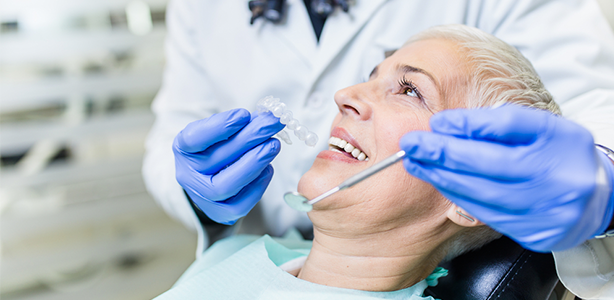
Diabetes affects many people across the world, diabetes not only affects the body’s insulin production but it also has the potential to affect a person’s oral health.
Why are people who have diabetes more susceptible to gum disease?
Bacteria that cause gum disease and other dental issues love a sugary environment. People’s bodies who have diabetes struggle to break down sugar effectively and therefore their saliva contains more sugar. As bacteria gather they combine with saliva and left over food particles to form plaque. When plaque builds-up it can lead to tooth decay and gum disease. This can be more likely to take place if the blood glucose levels in the body are not regulated properly
What kinds of oral health problems can a person with diabetes face?
Serious gum disease is the most common oral issue that diabetics are at risk of, however other infections include thrush and dry mouth, which can cause ulcers, infection and cavities. Wounds also take longer to heal in a person who has diabetes. This factor in addition to a high susceptibility to infection is why maintaining good oral hygiene is imperative.
Diabetes and gum disease feed into each other both ways.
People with diabetes are at greater risk of developing oral health problems such as gingivitis and periodontitis. Their bodies are less able to fight off serious bacterial infection. However, people with serious gum disease are at risk of progressing toward diabetes because the gum disease has the potential to affect blood glucose control.
What is gingivitis and periodontitis?
Gingivitis is the precursor to gum disease and it is when the bacteria cause the gums to become red, bleed and feel rather sore. Periodontitis is gum disease that can develop if gingivitis is left untreated. This gum disease erodes the bone and tissues that support the teeth. Periodontitis cannot be reversed or treated with brushing and flossing alone. You will need to visit a dentist or a specialist at Iris Dental in order to receive treatment; some patients require gum surgery in order to save their teeth.
How am I able to prevent dental problems if I have diabetes?
- Control the blood glucose levels in your body. By ensuring that the blood glucose levels in the body are stable and consistent, you will be able to prevent or relieve dry mouth caused by diabetes.
- Ensure you are taking good care of your teeth and gums. Brushing twice a day with good toothpaste and a soft toothbrush will enable you to remove plaque build-up. Flossing regularly along with brushing can aid in removing any food particles that may lead to decay. A mouthwash is optional, however it is encouraged in order to ensure that harmful bacteria gets removed from the mouth and it prevents the growth of an infection.
- Avoid smoking.
- If you wear dentures or crowns remember to remove and clean them daily. Letting food or plaque build-up between crowns and dentures creates a breeding ground for bacterial infection to thrive. Cleaning your dentures or crowns regularly will prevent a build-up of harmful bacteria.
How can I work with my dentist to maintain good oral health?
People who suffer with diabetes have special needs and requirements that need to be taken into consideration. Making your dentist aware of the fact that you have diabetes can help them ensure that you receive the correct treatment. Keep your dentist at Iris Dental informed of any changes in your condition as well as any medication that you may be taking. It is advised that you avoid any dental procedures or surgeries if your blood glucose levels are not healthy or stable. Dr Zumot will ensure that all things are taken into consideration during your consultation and treatment.
To book a regular check-up call Iris Dental on (03) 9394 7877.
